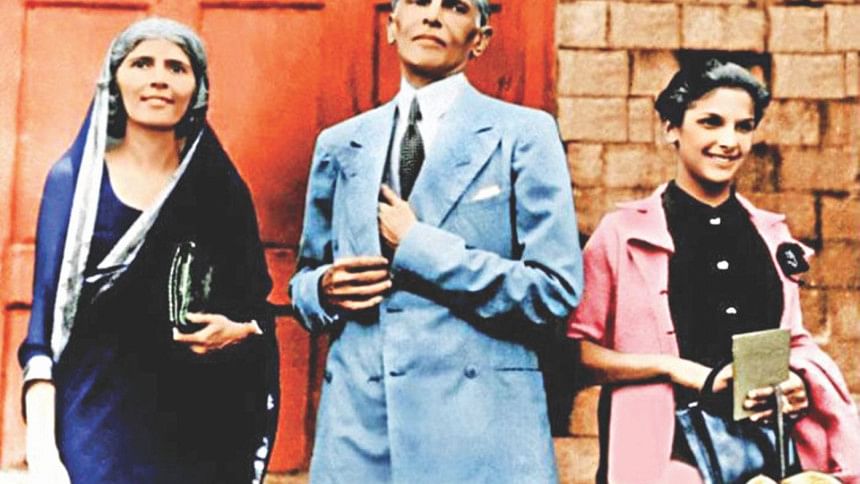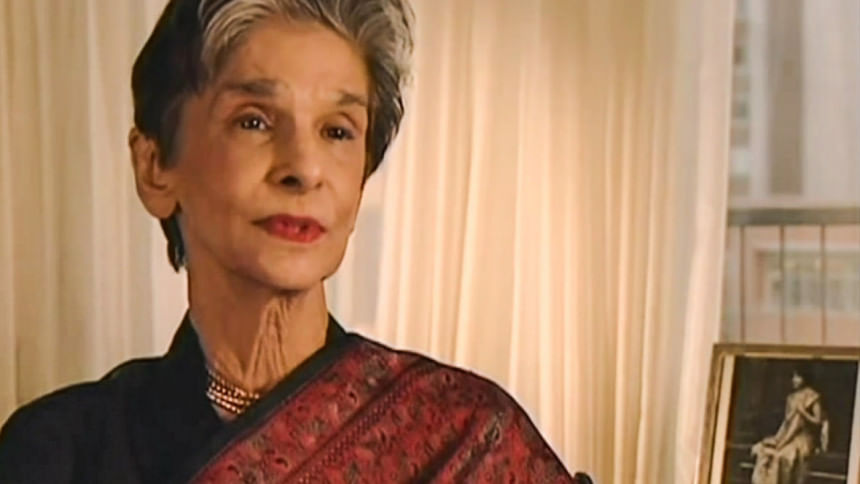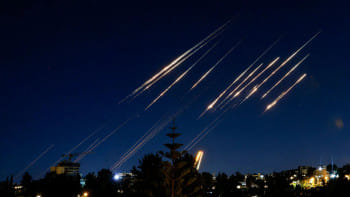Dina Wadia | Passing away of Jinnah’s only child

Dina Wadia died on November 2, 2017 at the impressive age of 98. She was the only child of Muhammad Ali Jinnah, the founder of Pakistan—though there was a breach between the two when she did as her father did and married a non-Muslim. She strenuously avoided public attention. But after five years of striving, I managed to meet her in her apartment off Madison Avenue in New York in September 2002.
I was in the US to cover the first anniversary of 9/11, and Dina said I could come over. She lived in the sort of exclusive apartment building where you didn't get into the lobby, never mind beyond it, unless you were expected. She wouldn't allow me to record an interview—she insisted nothing should be on-the-record—she wouldn't permit herself to be photographed … though she relented as I was leaving, and let me take a photo of a life-size, full-length portrait of her painted in London in 1943 when she was expecting her son, the businessman Nusli Wadia. (Alas, the photo didn't come out too well.)

With her death I am released from the bonds of confidentiality—and while there's nothing particularly surprising about what she said, I can at least set it down.
I was struck as soon as she opened the door by her appearance. She was spry and petite, wearing bright red lipstick—and with her high cheekbones and aquiline nose, and somewhat imperious expression, she looked strikingly like her father.
Indeed, I remember the shock of that first glance upon her—her father's daughter.

Dina was charming and friendly. She showed me a photo of her beautiful mother, Rattanbai "Ruttie" Petit, a Parsi, who died when her daughter was nine. She was brought up largely by her maternal grandmother.
On her desk was a photo of her father. She spoke of her pride in Jinnah. Yes, they had quarrelled over her marriage to Neville Wadia—who was born a Parsi but converted to Christianity—but they made up, and often spoke and wrote to each other. She says her father rang her from Delhi to say "We've got it!" when he won the Muslim League's demand for Pakistan. Her own temperament and personality, she reckoned, came more from her father than her mother.
Dina never made her home in Pakistan. She told me that Bombay was her city—though she has spent long periods in London as well as New York. She went to Pakistan for her father's funeral in 1948, and twice more to visit her aunt Fatima, Jinnah's sister, but when we met she hadn't set foot in Pakistan since Fatima's death in 1967.
She said she had been invited many times, by Benazir Bhutto and others, but had persistently refused—she didn't want to be used as a mascot. She complained of leaders who had "robbed" the country and warned that democracy hadn't flourished in any Muslim country.
(Two years after we met, she did return to Karachi and visited her father's mausoleum as well as take part in a touch of cricket diplomacy.)
Dina ran through a checklist of independence era leaders—she had warm memories of Gandhi, who her father liked; she said that Sardar Patel was "straight"; but she regarded Nehru as easily flattered and not her father's equal; while Mountbatten, she said, was simply "untrustworthy".
As for Jinnah's reputation, and the manner in which he is commemorated across Pakistan, she told me she didn't like the way her father was "worshipped".
And with that I was ushered out—but the memory of the encounter has remained with me, I made notes as soon as I got back to my New York hotel room and I have them in front of me as I write.
I am sad to hear of her death. There was something remarkable about her—and with her passing, just about the last remaining link with South Asia's independence era leaders has been broken.
Dr Andrew Whitehead is an honorary professor at the University of Nottingham and a former editor of History Workshop Journal.
This article was originally published on Andrew Whitehead's blog.






Comments